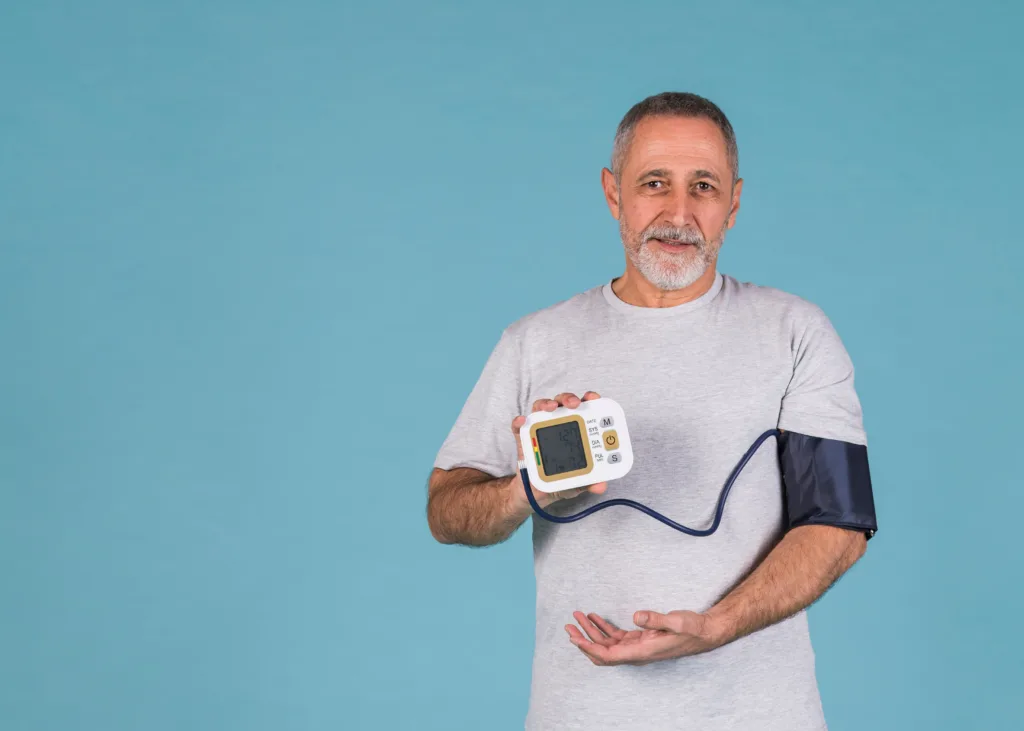In today’s rapidly evolving healthcare landscape, the patient takes center stage, not as a passive recipient but as a proactive partner in their own wellness journey. Engagement improvement drives this transformation, and it’s powered by three distinct experiences that redefine healthcare as we know it: Remote Patient Monitoring (RPM), Personalized Care Plans, and education for creating discerning consumers.
RPM - Empowering Patient with Technology
Let’s meet Sara, who battles a chronic condition. With RPM devices, Sara actively participates in her care. These devices, from wearable fitness trackers to smart blood pressure monitors, enable Sara to track her health metrics daily. Moreover, her healthcare team supports her every step of the way.
Empowered by technology, Sara records her vital signs and seamlessly shares the data with her doctor. Consequently, this real-time insight allows her doctor to tailor her care plan precisely. Sara isn’t just a name on a chart; she’s a person whose well-being matters.
Inspiration through videos
To inspire patients like Sara, healthcare providers harness the power of inspirational videos. For example, Sara can watch videos of individuals who’ve overcome similar health challenges, instilling hope and motivation. Furthermore, this personalized touch connects with patients on a human level, reminding them that they are more than their conditions.

Personalized Care Plans A Journey Together
Sara’s doctor doesn’t just hand her a generic treatment plan and hope for the best. Instead, they collaborate closely to create a personalized care plan tailored to Sara’s specific needs, preferences, and goals. As a result, the doctor knows Sara as a person, not just a medical case.
Sara actively participates in crafting her care plan, setting achievable milestones and goals. Together, they embark on this journey, ensuring she fully invests in her health. Therefore, Sara isn’t a passive recipient; she’s a partner in her own wellness.
Patient as a Discerning Consumer - Choice and Accessibility
In this new era of healthcare, Sara has choices. She isn’t bound by a one-size-fits-all approach. Instead, she acts as a discerning consumer, empowered to make decisions about her healthcare. For instance, she can choose providers, services, and treatments that align with her values and preferences.
Healthcare providers recognize this shift and prioritize timely, patient-centered care. Consequently, they ensure that Sara’s well-being remains the primary focus. Hence, Sara isn’t just another billing code; she’s a valued consumer of healthcare services.

Patient, Not Just Cases
In the evolving landscape of healthcare, the word “patient” no longer represents a passive entity. It embodies a person with unique needs, aspirations, and the power to actively engage in their health journey. RPM devices, personalized care plans, and a patient-centered approach redefine the healthcare experience, emphasizing the individuality and humanity of each user.
Healthcare providers must remember that patients, exemplified by individuals like Sara, are not merely cases to be managed within a system. They are unique individuals, each requiring personalized support and attention. Thus, our mission involves continuous innovation, inspiring our teams and the communities we serve, and prioritizing treatment engagement.
By doing so, we aim to craft a healthcare system that places the patient at the very core, recognizing and responding to their needs as the central focus of our efforts. Ultimately, transforming our approach to healthcare fundamentally changes lives. Through such transformations, we not only improve healthcare outcomes but also foster a more humane and compassionate healthcare environment.
Download this artice
Patient-Centric Healthcare: Engagement that transforms lives:
In today's rapidly evolving healthcare landscape, the patient takes center stage,
not as a passive recipient, but as a proactive partner in their own wellness journey.



50 responses to “Patient-Centric Healthcare: Transforming Lives”
hiI like your writing so much share we be in contact more approximately your article on AOL I need a specialist in this area to resolve my problem Maybe that is you Looking ahead to see you
Hello, thanks so much for your comment. Keep visiting our blog page. We will be constantly posting articles about how virtual health services can help providers and patients.
Interesting read! I appreciate the focus on patient-centric healthcare. It’s great to see how this approach puts patient needs and preferences first.
Thank you Taniel! We are glad you enjoyed the post. Patient-centric care is key to improving health outcomes, and it’s exciting to see how this approach is shaping the future of healthcare!
Patient centered healthcare is truly transforming lives.
Thank you for your comment Shelby! At Esvyda, we believe that prioritizing the needs and experiences of patients is essential for effective healthcare. Together, we can make a meaningful difference in lives.
Love seeing healthcare focusing more on the patient! When people feel listened to and involved, it really helps with recovery. So glad this is getting more attention!
Thanks for sharing Chesley! We totally agree. Putting patients first really does make a big difference.
We’re excited to keep spreading the word about this approach!
This article really opened my eyes to the importance of patient-centric care. It’s such a simple idea, but it makes such a big difference. Do you have more resources on how to implement this approach?
Thanks for your thoughtful comment Dion! We’re so glad the article resonated with you. Yes, we have more content on patient-centric care, feel free to explore our blog page or reach out if you’re looking for specific tips. We’d love to help!
Focusing on patient-centric healthcare truly changes lives. It’s inspiring to see how this approach makes a real difference in outcomes.
Absolutely, Westley! Patient-centric care puts people first, ensuring their needs and experiences drive the process. It’s incredible to witness how this approach leads to better, more meaningful health outcomes. Thanks for sharing your thoughts!
Putting patients at the center of healthcare is so important. It’s great to see this approach getting the attention it deserves!
Totally agree Harvie! Healthcare works best when it’s built around the patient. We’re excited to see this mindset gaining momentum. Thanks for your comment!
Patient-centric healthcare is such an important shift! It’s great to see that patients are getting more involved in their own care.
Absolutely Mrs. Langston! When patients are at the center of their care, it leads to better outcomes and a more positive experience. Thanks for sharing your thoughts!
Great article! I agree that healthcare needs to focus more on patients, not just symptoms. Any tips on how to apply this?
Thanks Merit for your comment! Glad you enjoyed it. Stay tuned, we’ll share practical tips in upcoming posts!
I really appreciate the focus on patient-centric healthcare. It’s great to see that the well-being of patients is being put at the center of healthcare systems. This approach can make a big difference in improving outcomes.
Absolutely Natasha! Putting patients first means better, more personalized care. It’s the key to creating a healthcare system that truly works for everyone. Thanks for your thoughts!
This concept of patient-centric care really resonates with me. It’s about time that healthcare becomes more personalized and less about just treating symptoms. When patients are involved in their care, outcomes are much better.
Exactly Mr. Aaron! Patient engagement is critical for improving health outcomes. A personalized approach truly empowers patients to take control of their health. Thanks for sharing your thoughts!
It’s inspiring to see healthcare shifting to focus more on patients. This perspective really resonates with me.
Thank you Kelda! Patient-centered care truly has the power to transform lives. We’re glad the message resonated with you!
Really insightful article! It’s clear that putting patients at the center of healthcare can make a huge difference. 👏🏻
Thanks for your feedback Tabitha! We’re glad you found it helpful. Patient-centered care is the way forward.
Patient-centric healthcare is truly the future. When doctors really listen and tailor care to each individual, lives change for the better!
Exactly Mr. Monroe! Putting patients first is key to transforming care and achieving better outcomes. Thanks for sharing your thoughts!
Patient-centric care isn’t just a trend—it truly transforms lives by tailoring treatment to each individual’s needs.
Absolutely Vinnie! When we put patients first, we create a system that builds trust and delivers better outcomes. Thanks for sharing your thoughts!
This gave me hope. My last experience felt rushed and cold. We need more of this mindset.
We’re truly sorry to hear that Justina, and you’re not alone in feeling that way. That’s exactly why this shift matters. Every patient deserves care that feels personal, respectful, and connected.
Can tech really support this kind of approach, or does it just get in the way?
Excellent question. Technology, when used thoughtfully, can enhance patient-centered care, for example, by improving communication or access. But it should never replace the human connection.
Appreciate the focus on dignity. It’s something you notice when it’s missing.
So true Blanch. Dignity is foundational, and its absence can deeply affect a patient’s experience. Our goal is to ensure it’s present in every interaction.
Isn’t this just good old-fashioned bedside manner with a new name?
That’s a great way to look at it Venetia! Patient-centric care builds on traditional values like compassion and respect, while also involving patients more deeply in decisions and care planning.
This feels like the kind of healthcare we all deserve. Thanks for sharing.
Thank you for reading Silverio! We believe every patient deserves care that centers around their needs, values, and voice, and we’re glad the message resonated with you.
Do doctors even get trained for this kind of care?
Increasingly, yes Mrs Crescencia. Medical education is evolving to include communication, empathy, and patient involvement as core competencies. It’s a vital shift in how care is delivered.
Sounds awesome, but how do we make this real in underfunded hospitals?
A very important point Dr. Barret. Even in resource-limited settings, small actions like clear communication, dignity, and involvement in decisions, can build patient-centered care from the inside out.
Love this perspective. Healthcare that actually listens? Count me in.
Thank you Larrie! Listening is at the heart of transformation, when patients feel heard, outcomes and trust both improve.
Does this mean shorter wait times too? Or just nicer conversations? 😅
Great question Tallulah! While communication is key, true patient-centric care also looks at system improvements like access, wait times, and overall experience. It’s about the full picture.
This! Finally, someone’s talking about treating patients like actual people 🙌
We couldn’t agree more Bell! Patient-centric care starts with respect, empathy, and truly seeing each individual, not just their diagnosis.